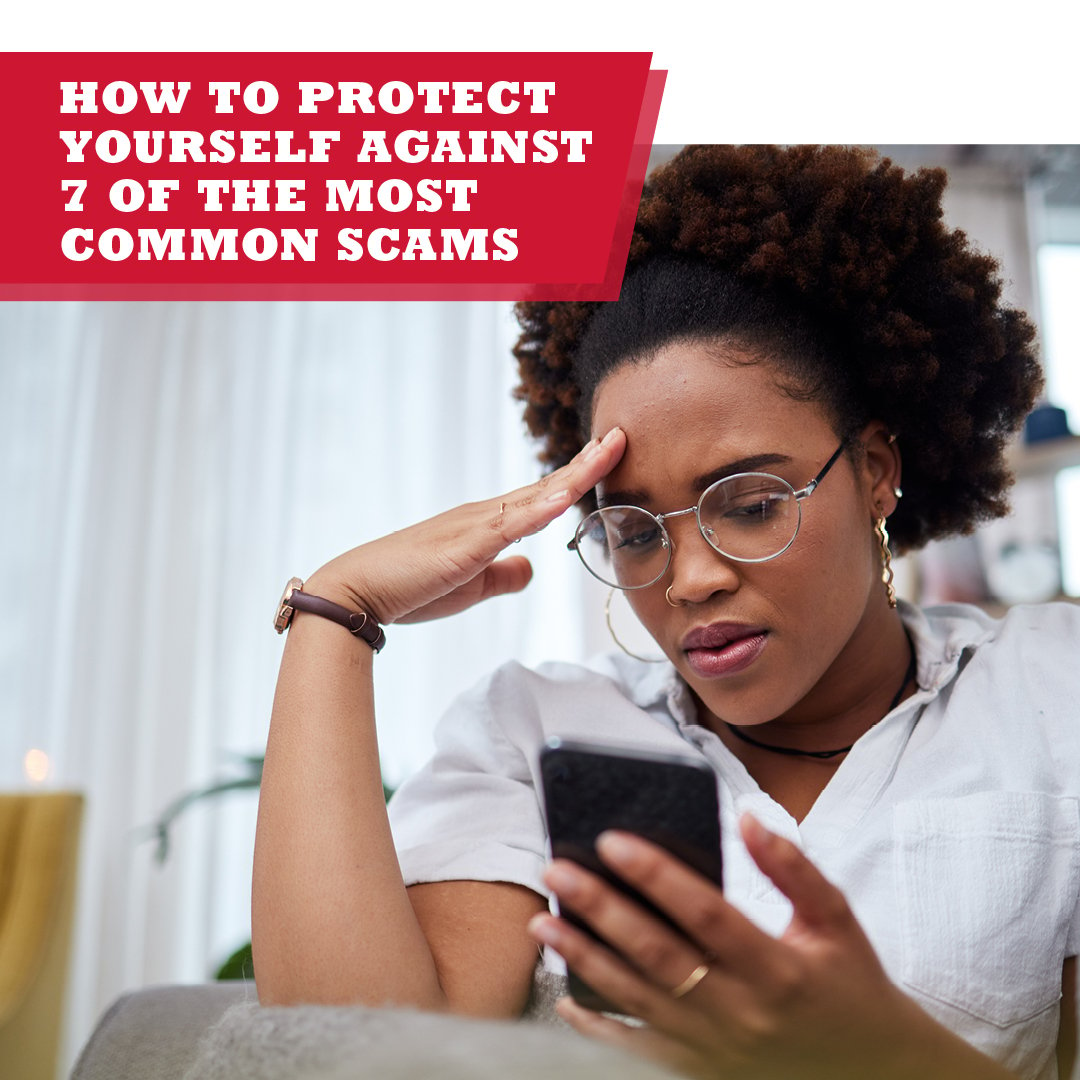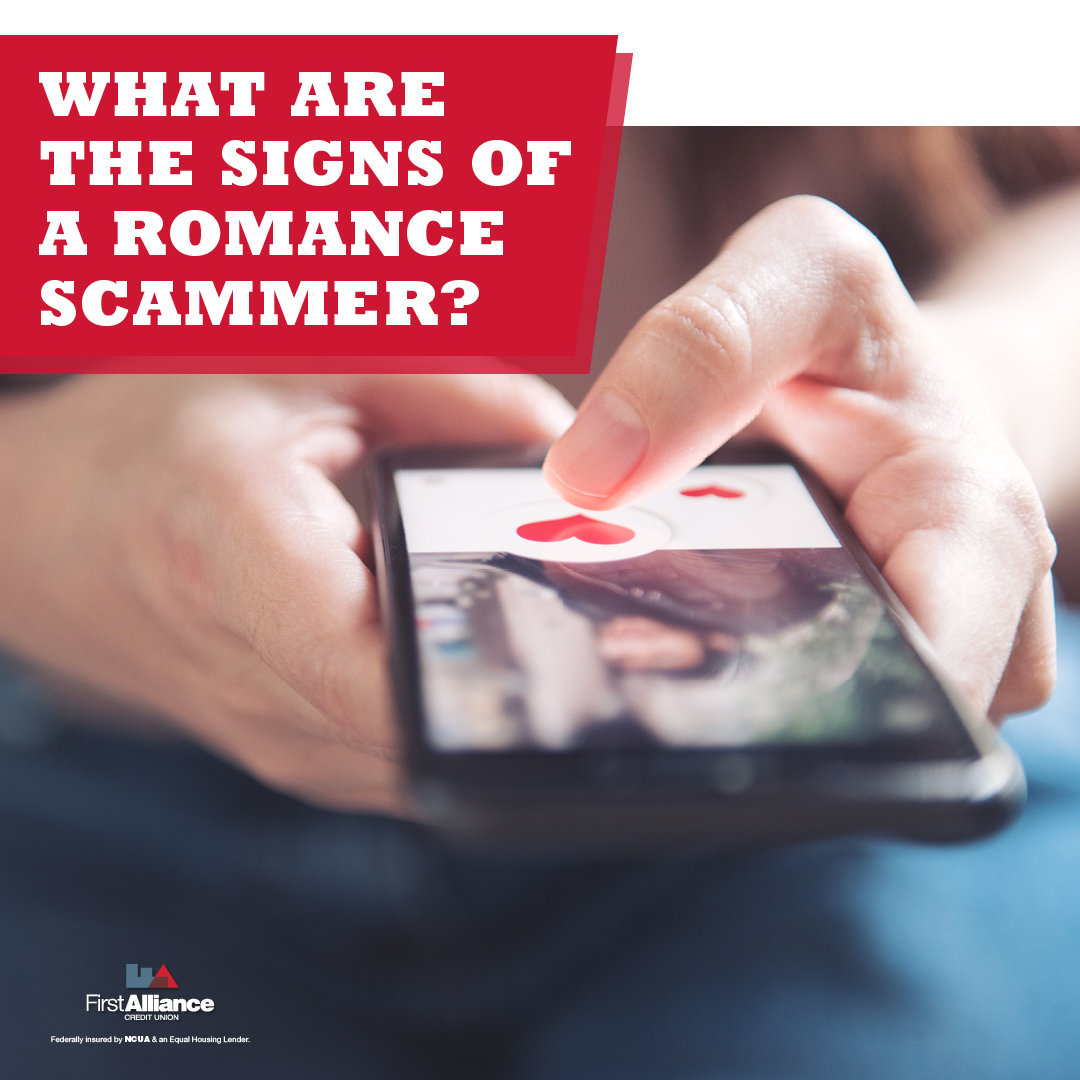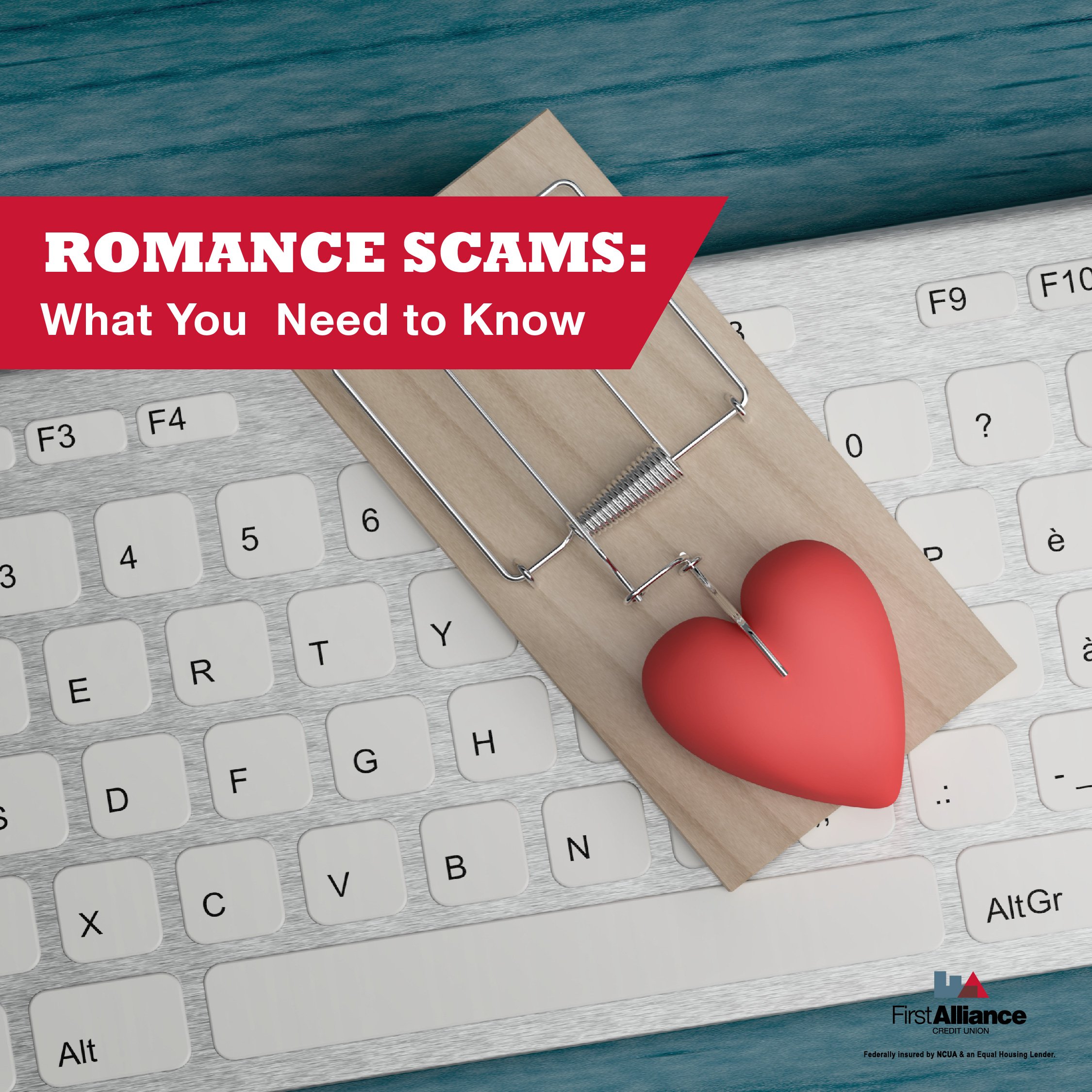What are the Signs of a Romance Scammer?
In some ways, the Internet has been a real help for anyone looking for love. Several dating sites and mobile apps give you hundreds, even thousands...
6 min read
 Chris Gottschalk
:
Oct 17, 2023 4:45:00 AM
Chris Gottschalk
:
Oct 17, 2023 4:45:00 AM

If you’re worried about being scammed, it’s not because you’re paranoid. Scammers are the zombie apocalypse of the financial world. They’re relentless, they seem to be everywhere, and even if you think you’ve taken every precaution, you still have to be on your guard.
Scammers aren’t some unstoppable force, though. You can take several steps to protect yourself against them, and one of the most important steps is to learn about some of the most common scams.
That’s where this blog comes in. By the time you’ve finished reading this blog, you’ll have learned about the seven most common frauds scammers use to get money from unsuspecting victims. You’ll also learn about the best ways you can spot these scams, so you’re better able to avoid one when you see it.

Phishing scams try to trick people into revealing sensitive information. Scammers will try to do this by sending emails that impersonate legitimate organizations, like banks or companies. If you’ve ever gotten an email that claims your Amazon or PayPal account will be shut down unless you fix it right now, you might have encountered a phishing scam.
Everyone loves winning money, and scammers prey on this by letting potential victims know they might have won a jackpot. Before you can claim your prize, though, you need to supply them with some personal information or pay a “processing fee” to get your prize.
If you’ve ever had a pop-up window open up on a website letting you know you have serious computer issues, you’ve encountered a tech support scam. If you click on the ad or call the number, a scammer impersonating a tech support representative will try to gain remote access to your computer, and from there they can go through your personal information and potentially even lock you out of your computer.
A romance scammer will try to get you to fall for them, then use your feelings to manipulate you into buying them gifts or sending you money.
Tax season is stressful for most people, and scammers use that to their advantage. They like to pretend to be from the IRS or be a tax professional, and try to trick you into revealing personal information. Scammers might even try to demand you pay money or risk getting arrested!
Employment scams target job seekers with fake job offers on classified job boards or social media, promising high salaries or work-from-home opportunities. The catch? You have to make payments for either your application or training materials first.
If you get a check addressed to you that you don’t remember requesting, you might be encountering a fake check scam. Scammers love to send these checks to victims, then ask them to deposit the check and send them part of that money back.
In 2023, some of the most common scams to be aware of include phishing emails and text messages, fake tech support calls, romance scams, identity theft, investment fraud, and fake charity scams. Stay informed and vigilant to protect yourself from falling victim to these scams.
While the best way to safeguard yourself from scams and frauds is to know how they try to trick you into giving them information or money, you should also know what to do if you’ve been scammed. This can minimize the damage and help you recover that much faster.
Once you realize you've been scammed, immediately stop all contact with the scammer. Next, report any fraudulent transactions to your bank or credit card company. If you suspect you've been the victim of identity theft, you might even want to freeze your accounts.
You should also alert your friends and family members about the scam. This will help them protect themselves in case the scammer tries to reach out to them using your information.
You’ll also want to alert the proper authorities about the scam. These can include:
This can be the hardest part of dealing with scams. No one wants to admit they’ve been taken advantage of or tricked. However, the sooner you reach out to the authorities, the better chance you’ll have of minimizing the damage the scammers have done to you.
Losing money to a scammer can be bad enough. If a scammer steals your identity, though, they can wreak havoc on your checking accounts, saving accounts and most importantly your credit score. If you've been the victim of identity theft, you'll need to take some additional steps to rebuild your credit.
Your first step should be to prevent anyone from opening an account in your name. You can do this by contacting the three credit union bureaus and having them freeze your accounts.
While you're contacting the credit bureaus, you can also have them place a fraud alert on your account. This lasts for one year, and when lenders see it they will take extra steps to verify your identity before opening an account in your name.
Contact the Social Security Administration and let them know your number has been used to commit fraud.
Once you're done with that, update the passwords on everything, from your online bank accounts to your utility bills to your email accounts. Set up 2-factor identification where possible to make it harder for scammers to access your information.
File an official identity theft report at IdentityTheft.gov. You need to do this in order to repair your credit.

Get a copy of your credit reports and check them for signs of identity theft, such as:
Dispute any incorrect information on your credit report. You'll need to contact each of the three credit bureaus an explain that you've been the victim of identity theft. You'll also need to let them know which information on your report is due to scammer activity and what you would like blocked.
Close any accounts opened in your name. Contact the institutions that hold these fraudulent accounts, let them know you've had your identity stolen and to close the accounts as soon as possible.
If you're receiving notices from debt collection agencies, let them know that someone stole your identity and to stop reporting the debt to the credit bureaus.
Monitor your credit reports constantly for the next year or so to make sure that scammers aren't trying to use the information you stole.
You might think this is a lot of work, and unfortunately, you'd be right. Recovering from identity theft can be a lot of work. The good news, though, is that once you've taken these steps, you'll start to see your credit score improve.
Scammers seem like they can be lurking behind every URL and envelope, but you can safeguard yourself against scams and frauds. When you know some of the most common types of scams criminals use, you’ll be less likely to fall for them. If you are victim of a scam, though, you should act quickly and know who to contact in order to keep the damage they’ve done to a minimum.
You can also get help protecting yourself against scams by becoming a member of First Alliance Credit Union. We offer several services to help protect yourself against scammers, including the My Cards feature on our mobile app, which lets you control where and when your debit card is used. You can even limit how much you can charge per transaction, and turn it off entirely if you suspect someone has gotten their hands on your information.

In some ways, the Internet has been a real help for anyone looking for love. Several dating sites and mobile apps give you hundreds, even thousands...

Online dating websites, dating apps and social media sites are incredibly popular ways to meet new people. Unfortunately for some, instead of finding...
If you think you may be a victim of identity theft, you need take action quickly. One of the first steps you should take is to place an initial fraud...